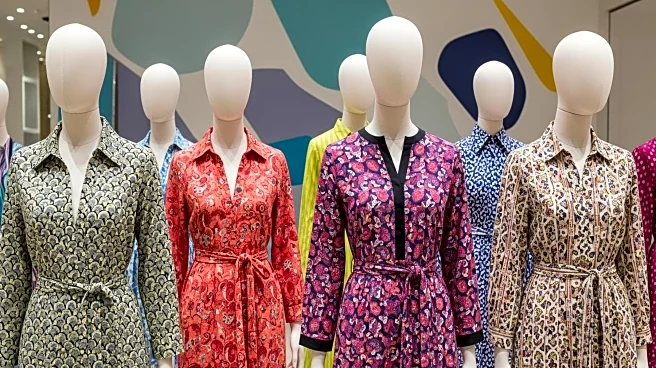What's Happening?
Mexico is actively diversifying its apparel imports, with a noticeable decline in China's share of the market. In the first seven months of the current year, China's share fell to a lower percentage of Mexico's total garment imports, which were valued at several billion dollars. Despite this decline, China remains the top supplier, followed by Vietnam, Bangladesh, Cambodia, and India. This shift reflects global supply chain realignments and Mexico's strategic move towards supplier diversification. Historically, China has been a dominant player in Mexico's apparel market, but recent trends indicate a shift towards other countries due to competitive pricing, improved quality standards, and favorable trade conditions.
Why It's Important?
The diversification of Mexico's apparel imports is significant for several reasons. It indicates a shift in global supply chain dynamics, potentially reducing dependency on China and fostering competitive pricing and quality improvements. This move could benefit Mexican consumers and businesses by providing access to a broader range of products and suppliers. Additionally, countries like Vietnam and Bangladesh stand to gain from increased market share, which could bolster their economies and strengthen trade relations with Mexico. This trend may also influence other countries to reconsider their sourcing strategies, impacting global trade patterns.
What's Next?
As Mexico continues to diversify its apparel imports, it is likely that other countries will follow suit, seeking to reduce dependency on a single supplier and enhance trade relations with multiple partners. This could lead to increased competition among suppliers, driving innovation and quality improvements in the apparel industry. Additionally, Mexico may explore further trade agreements or partnerships to solidify its position in the global market. Stakeholders, including businesses and policymakers, will need to monitor these developments closely to adapt to changing market conditions.
Beyond the Headlines
The shift in Mexico's apparel import strategy may have broader implications for international trade policies and economic relations. It could encourage other nations to reassess their trade dependencies and explore new partnerships, potentially leading to a more balanced and resilient global supply chain. Furthermore, this diversification may prompt discussions on ethical sourcing and sustainable practices within the apparel industry, as countries compete to offer better quality and environmentally friendly products.








